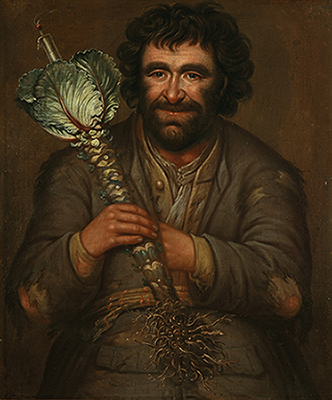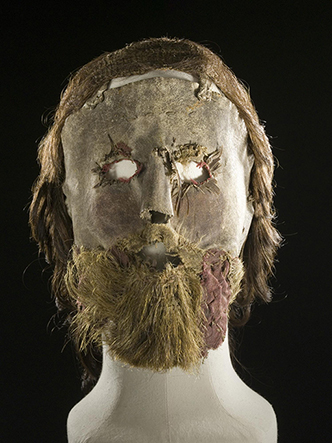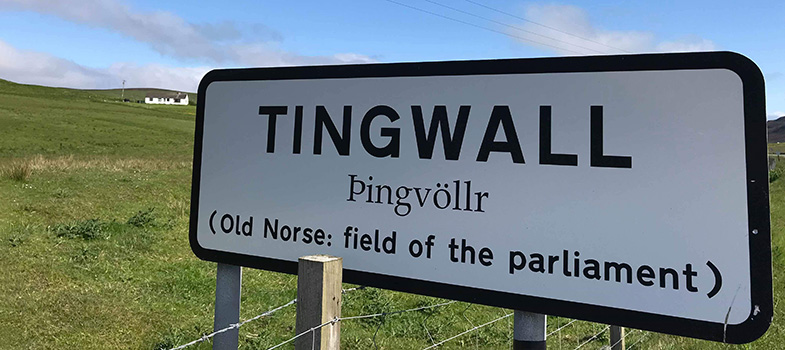9. Introductory handsel
A Scots word and example sentence to learn:
Guiser [Tip: hold Ctrl and click a link to open it in a new tab. (Hide tip)]
Definition: A mummer, masquerader, esp. in mod. times one of a party of children who go in disguise from door to door at various festivals, esp. Halloween, Christmas Eve and Hogmanay.
Example sentence: “Dinnae tak a fleg; it’s only the guisers ben the hoose.”
English translation: “Don’t be scared; it’s only the masqueraders through in the front room.”
Please note: In many areas of Scotland guisers still go around houses at festivals like Halloween, masquerading in costume and presenting set pieces in return for token rewards: pieces of fruit or small coins.
This Scottish performance tradition was exported by emigrants to the United States where it became transformed into the American form of ‘Trick or Treat’. This form has been re-exported to Scotland and the rest of Britain, where its origins are often forgotten.
Activity 2
Click to hear the sentence above read by a Scots speaker.
You can then make your own recording and play it back to check your pronunciation.
Transcript
Listen
Dinnae tak a fleg; it’s only the guisers ben the hoose.
Model
Dinnae tak a fleg; it’s only the guisers ben the hoose.
Go to the Dictionary of the Scots Language for a full definition of the word

Language Links
You might have heard people in Scotland talk about a person, often a man, being a guiser, or in English ‘geezer’ – an odd looking person. And you will hear people in Scotland talk about going guising at Halloween. The use in connection with Halloween comes much closer to the original meaning of the word, to go masquerading or to be a masquerader, to disguise oneself.
The Scots words guise, guising and guiser all originate in Old French guise “manner or fashion” and desguiser "disguise, change one's appearance". In today’s French you will come across the verb se déguiser which means to disguise oneself or to masquerade; this too comes from Old French desguiser.
Related word:
Definition: n. 1. A fright, a scare.
Example sentence: “Dinnae tak a fleg; it’s only the guisers ben the hoose.”
English translation: “Don’t be scared; it’s only the masqueraders through in the front room.”
Activity 3
Click to hear the sentence above read by a Scots speaker.
You can then make your own recording and play it back to check your pronunciation.
Transcript
Listen
“Dinnae tak a fleg; it’s only the guisers ben the hoose.”
Model
“Dinnae tak a fleg; it’s only the guisers ben the hoose.”
Go to the Dictionary of the Scots Language for a full definition of the word

Please note: This is an image of an exhibit in the National Museum of Scotland in Edinburgh. Peden was a leading Covenanter who spent years as a fugitive, holding open-air conventicles and dodging the authorities. This mask on display here was his disguise.
Working with DSL entries
Here you’ll learn to interpret in more detail a DSL dictionary entry. In this example, an extract from the ‘guiser’ entry in the DSL, we will show you what the different parts of the entry mean. In conjunction with the information in this box, visit the overview of the abbreviations used in the DSL to help you to fully decode this entry.
We have broken up the entry on the word guiser into smaller parts. For each part we provide a commentary which ‘translates’ the part and gives additional information where appropriate.
GUISER, n., v.
[Noun and verb – you might have noticed that many Scots words are the same as nouns or verbs]
Also guisar, guizer, -ar, gyser, -ar; guisard, -art, guiz-, g(u)ys-, g(u)yz-, ¶guiserd (Hdg. 1896 J. Lumsden Poems 145), ¶-yard (m.Sc. 1927 J. Buchan Witch Wood x.), ¶geizart (Rxb. 1925 E. C. Smith Mang Howes 14), ¶gayzard.
[This part of the entry lists the different spellings of the word that have been found – as Scots is not a language with a common standard, also for the written language – there are often different spellings for the same word, in many instances these are, for example, related to different pronunciations in the dialects;
It also shows where particular and more unusual spellings have been found and when, i.e. ‘guiserd’ on page 145 in the poem collection by James Lumsden published in Haddington; or ‘guisyard’ in the modern Scots on page x. of John Buchan’s novel Witch Wood published in 1927]
[′gɑezər -ərd, -ərt]
[This part shows the phonetic transcription of the different spellings, which explains how these would have to be pronounced; if you are not familiar with phonetic script, here is an explanation]
I.n. 1. A mummer, masquerader, esp. in mod. times one of a party of children who go in disguise from door to door at various festivals, esp. Halloween, †Christmas Eve and †Hogmanay (Sc. 1770 Hailes Ancient Sc. Poems 286). Gen.Sc. and n.Eng. dial. Also fig.
[This is the first entry describing one of the meanings of the noun; it also shows one use that has been found in a publication from 1770 but appears to have died out today, which that describes people disguising themselves on Christmas Eve and Hogmanay – this use was seen in Ancient Scottish Poems. Published from the MS. of G. Bannatyne (Edited with a preface and glossary by Sir David Dalrymple, Lord Hailes) published in 1770, p.286; the word is general Scots and also northern English dialect; it can also be used figuratively or metaphorically]
Edb. 1773 Edb. Ev. Courant (18 Jan.): Some boys diverting themselves through the streets as guizards [at Auld Yule].
[Finally, this part of the first entry shows an example of how the noun is used through a quote where the search term ‘guiser’ in one of its variants appears, e.g. in the Edinburgh Evangelical Courant edition of the 18 January 1773]
Activity 4
You have already worked widely with the Dictionary of the Scots Language (DSL) in all units of this course. The main use of the dictionary has so far been to find meanings of Scots words to help you understand and translate Scots sentences/texts.
In this activity, you will enhance your dictionary skills and try out working with a different aspect of the dictionary: etymology – changes of meaning over time as well as locations. Because of the dialect diversity present in Scotland, the DSL identifies the locations at which Scots words have been used with different meanings or spellings.
Introduction
